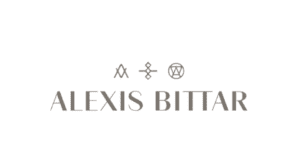Summary
Mason quadrupled Tayst Coffee Roasters’s bottom-of-the-funnel sales at no increase in cost, with our rigorous, methodical, ad-testing strategy. Our scientific methodology for digital advertising isolates and tests individual variables can dramatically improve campaign performance when marketing to finite remarketing audiences.
Challenge
The bottom of anyone’s sales funnel has a fixed, finite audience. In Tayst’s Case, it was defined as the last 90 days of website visitors + any who “added to cart” over the last year + engaged email subscribers.
Working with fixed audiences, advertisers face a critical efficiency challenge: Meta charges on a CPM based on reach and frequency, which are products of the finite audience size. Said another way, Meta charges for impressions regardless of performance, so every click is crucial to ROI. Tayst Coffee Roasters needed to maximize the value of their remarketing budget by generating the highest possible engagement from their existing audience.
Solution
Mason implemented a methodical, scientific testing process that isolated individual variables to measure their specific impact on ad performance. This approach included:
- Baseline Testing: Created three distinct ad variations to establish performance benchmarks
- Variable Isolation: Systematically tested one variable at a time:
- Image variations
- Copy variations
- Color schemes
- Call-to-action buttons
Implementation
The process followed five distinct phases:
Phase 1: Base Ad Testing
- Developed three initial variations
- Tested different combinations of imagery, copy, and CTAs
- Identified winning ad with 0.5% CTR as a baseline
Phase 2: Image Optimization
- Created variations of winning ads with different product imagery
- Maintained consistent copy and CTAs
- Improved CTR to 0.7% with optimal image
Phase 3: Copy Testing
- Tested different messaging approaches
- “A Revolutionary Single-Serve Pod” headline achieved 0.9% CTR
- Demonstrated importance of value proposition clarity
Phase 4: Color Optimization
- Tested green, orange, and light green backgrounds
- Light green variation achieved 1% CTR
- Showed significant impact of visual elements on engagement
Phase 5: CTA Refinement
- Tested different button text variations:
- “Shop Now”
- “Start Your Journey”
- “Taste the Difference”
- Final optimization achieved 2% CTR
Results
The systematic testing approach delivered remarkable improvements:
- Starting CTR: 0.5%
- Final CTR: 2.0%
- Overall Improvement: 300% increase in click-through rate
- Cost per Click: Reduced by 75% (due to identical impression costs with higher CTR)
Key Learnings
- Scientific Method Works: Isolating variables provides clear, actionable insights about what drives performance
- Compound Benefits: Each optimization is built upon previous improvements
- Fixed Audience Efficiency: With finite remarketing audiences, CTR improvements directly impact bottom-line efficiency
- Measurable Impact: Systematic testing eliminates guesswork and provides clear ROI metrics
Conclusion
Mason’s scientific approach to ad optimization demonstrated that methodical testing and refinement can dramatically improve advertising performance, even within fixed audience constraints. By quadrupling CTR while maintaining the same impression costs, Mason helped Tayst Coffee Roasters achieve significantly better ROI from their remarketing budget.
This case study validates the importance of systematic testing in digital advertising and shows how agencies can deliver measurable value through disciplined, data-driven optimization processes.






















